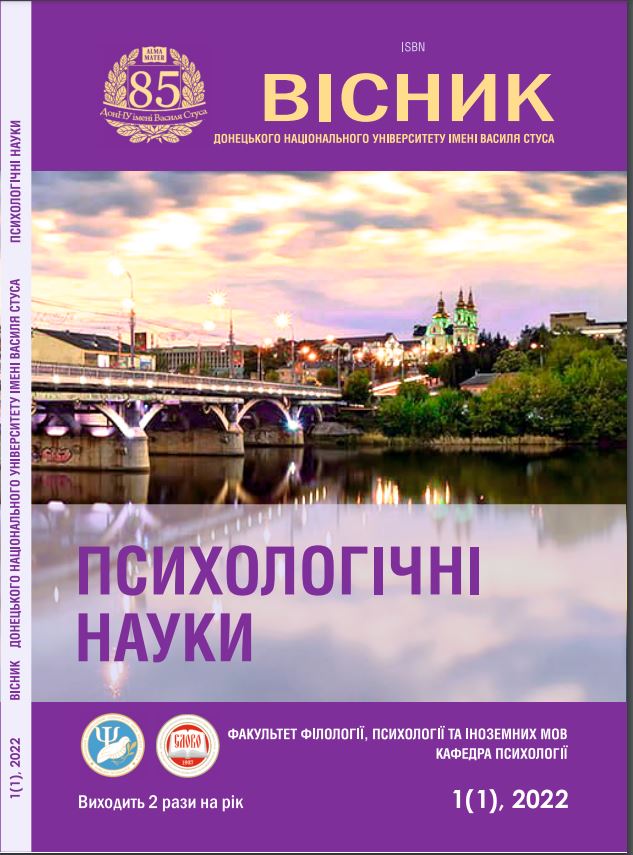Peculiarities of conflict behaviour in one-sex and different-sex student groups
DOI:
https://doi.org/10.31558/2786-8745.2022.1(1).6Keywords:
conflict; conflict behavior strategy; interpersonal relations; emotional intelligenceAbstract
The article is devoted to the analysis of single-sex and mixed-sex student groups, namely, the features of their conflict behavior and its strategies. Therefore, the purpose of the work is to determine the strategies for solving the conflict situation, which are typical for students of late adolescence and early young age. In order to study personal propensity to conflict behavior, to identify certain styles of conflict resolution, we used the method of researching personality propensity to conflict behavior by K. Thomas in the adapted version of N. Hryshina. Testing was conducted among students of Kramatorsk College of Technology and Design, which determined its specificity.
The results of observations and tests prove that blended learning has a positive effect on interpersonal relationships. But life presents its own challenges, so the specificity of the future profession determines the presence of purely male and purely female groups in secondary and higher educational institutions, which provokes the appearance of certain difficulties in the formation of favorable psychological climate and friendly interpersonal relations. Teachers, curators, and psychologists of students’ groups should promote the assimilation of less aggressive strategies of behavior in a conflict situation (compromise, cooperation). The prospect of further research is in the development of special methods for the formation of harmonious interpersonal relations in same-sex groups, because work in such teams causes certain difficulties for teachers, besides, favorable microclimate will have a positive effect on the academic success of students and can optimize the process of mastering the necessary practical skills.
References
Baker J. A., Dilly L. J., Aupperlee J. L., Patil, S. A. (2003). The development of school satisfaction:schools as psychologically healthy environments. School Psychology Quarterly, 18, 206–221. URL: https://doi.org/10.1521/ scpq.18.2.206.21861.
Eccles J. S., Roeser R. W. (2011). Schools as developmental contexts during adolescence. Journal of Research on Adolescence, 21, 225–241. URL: https://doi. org/10.1111/j.1532-7795.2010.00725.x.
Upadyaya K., Salmela-Aro K. (2013). Development of school engagement in association with academic success and well-being in varying social contexts: a review of empirical research. European Psychologist, 18, 136–147. URL: https://doi. org/10.1027/1016-9040/a000143.
Wang M.-T., Eccles J. S. (2012). Social support matters: Longitudinal effects of social support on three dimensions of school engagementfrommiddle to high school.Child Development, 83, 877–895. URL: https://doi. org/10.1111/j.1467-8624.2012.01745.
Ложкін Г. В. Психологія конфлікту: теорія і сучасна практика: навчальний посібник. Київ. ВД «Професіонал». 2007. 416 с.

